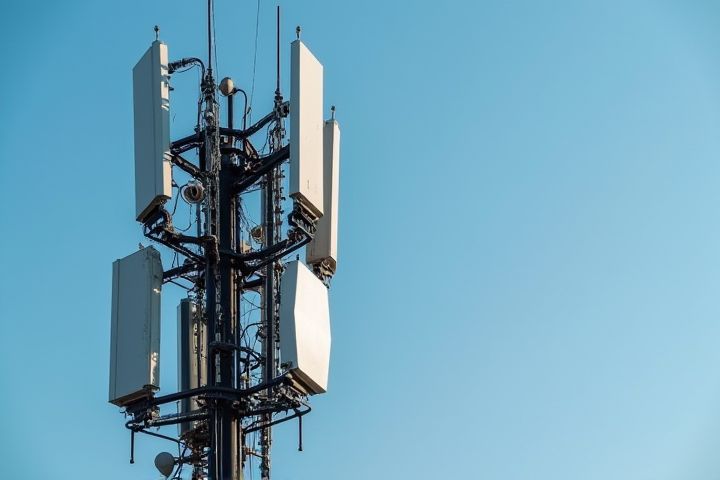
Nigeria's telecommunications industry has experienced remarkable growth, driven by rapid mobile phone adoption and competitive market dynamics. With over 200 million mobile subscribers, it has become one of the largest telecom markets in Africa, showcasing significant contributions to the country's GDP. Major players like MTN, Airtel, and Glo are enhancing network infrastructure through 4G and expanding into 5G technology, improving internet access across urban and rural areas. Regulatory bodies like the Nigerian Communications Commission (NCC) play a vital role in ensuring fair competition and consumer protection. As you explore telecom services in Nigeria, consider the impact of innovations such as mobile banking and digital services on everyday life.
Major telecom operators: MTN, Airtel, Glo, 9mobile
In Nigeria, the telecom sector is dominated by major players including MTN, Airtel, Glo, and 9mobile, each offering a wide range of voice and data services. MTN leads the market with an extensive network coverage and innovative service offerings, including mobile money solutions. Airtel is known for its competitive data plans and customer loyalty programs, making it a popular choice among urban users. Glo, with its aggressive pricing strategies and unique promotions, appeals to budget-conscious consumers, while 9mobile focuses on providing quality service in specific regions, catering to niche markets.
Regulatory authority: Nigerian Communications Commission
The Nigerian Communications Commission (NCC) serves as the primary regulatory authority overseeing the telecommunications sector in Nigeria, ensuring compliance with industry standards and protecting consumer interests. Established under the Nigerian Communications Act of 2003, the NCC is responsible for issuing licenses, managing spectrum allocation, and promoting competition among telecom service providers. The Commission also plays a vital role in enforcing regulations related to quality of service and consumer rights, thereby fostering a robust telecom environment. By maintaining transparency and accountability, the NCC helps to drive innovation and expansion in Nigeria's rapidly growing telecommunications market.
Rapid mobile internet growth
Nigeria's telecommunications sector is experiencing rapid growth in mobile internet connectivity, driven by increasing smartphone penetration and affordable data plans. As of 2023, over 50% of the population has access to mobile internet, significantly enhancing communication and digital services across urban and rural areas. Key players in the industry, such as MTN, Glo, and Airtel, are investing heavily in infrastructure to improve network coverage and speed. This growth not only supports e-commerce and social media engagement but also boosts economic development and digital literacy in Nigeria.
4G and emerging 5G services
Nigeria's telecommunications sector is rapidly advancing, with a significant emphasis on 4G technology and the introduction of emerging 5G services. Major telecom companies are investing in infrastructure to enhance network coverage and improve internet speeds, catering to the growing demand for mobile data. This shift not only supports digital inclusivity but also fosters economic growth through e-commerce, telemedicine, and online education. As a consumer, you can benefit from these advancements by enjoying improved connectivity and access to innovative digital services.
SIM card registration requirements
In Nigeria, the registration of SIM cards is mandatory, aimed at enhancing security measures and reducing crime associated with unregistered mobile lines. The National Identity Management Commission (NIMC) mandates that individuals provide a valid identity verification, such as a National Identity Number (NIN), before obtaining a SIM card. This initiative is crucial for telecommunications providers to comply with government regulations and to ensure accountability among users. For your convenience, the registration process is designed to be straightforward, typically requiring you to visit a designated service center with proper identification.
Challenges: Infrastructure deficits
Infrastructure deficits significantly hinder the growth of the telecom sector in Nigeria. Limited access to reliable power supply and poor road networks impede the installation and maintenance of telecommunications equipment. Rural areas remain particularly underserved, resulting in a digital divide that affects service accessibility and quality. You may find that addressing these infrastructure challenges is essential for fostering innovation and expanding coverage across the nation.
Mobile number portability
Mobile Number Portability (MNP) in Nigeria allows users to switch telecom service providers while retaining their phone numbers, fostering competition and improving service quality. Implemented by the Nigerian Communications Commission (NCC), MNP enhances consumer choice and encourages providers to innovate their offerings. Since its launch, millions of users have taken advantage of this feature, resulting in a more dynamic telecom landscape. By facilitating smoother transitions between networks, MNP plays a crucial role in shaping the future of communication in Nigeria.
Significant rural-urban digital divide
Telecom in Nigeria is actively addressing the significant rural-urban digital divide, which hampers equitable access to technology. In urban areas, advanced infrastructure facilitates high-speed internet and mobile connectivity, while rural regions struggle with limited service and inadequate resources. Investments in satellite and wireless technologies are being prioritized to expand coverage and improve connectivity in underserved communities. You can support this initiative by advocating for inclusive policies and encouraging local enterprises to utilize digital platforms.
Internet service providers' competition
The telecom sector in Nigeria has seen rapid growth, primarily driven by competition among Internet service providers (ISPs). Major players like MTN, Airtel, and Glo continually enhance their offerings, striving to capture a larger share of the broadband market. The expansion of 4G and emerging 5G networks has significantly improved internet speed and accessibility for users across urban and rural areas. As a result, consumers benefit from more affordable rates, diverse service plans, and enhanced technology, ultimately fostering a more connected society.
Increasing mobile payment adoption
Nigeria's telecom industry is enhancing mobile payment adoption through innovative technologies and strategic partnerships. Major networks like MTN and Glo are investing in user-friendly mobile wallets that facilitate seamless transactions, catering to an increasingly tech-savvy population. The Central Bank of Nigeria's initiatives, such as the National Financial Inclusion Strategy, further support this growth by promoting financial literacy and encouraging digital banking solutions. By prioritizing security features and enhancing accessibility, these telecom companies are positioning Nigeria as a leader in mobile payment solutions across Africa.
